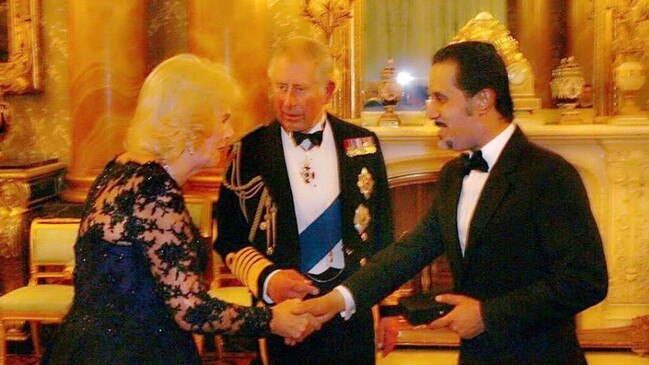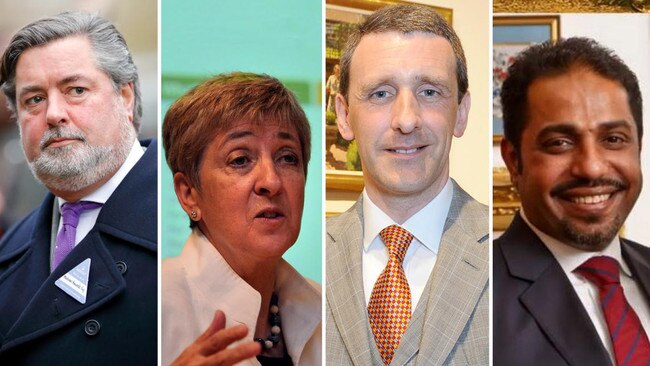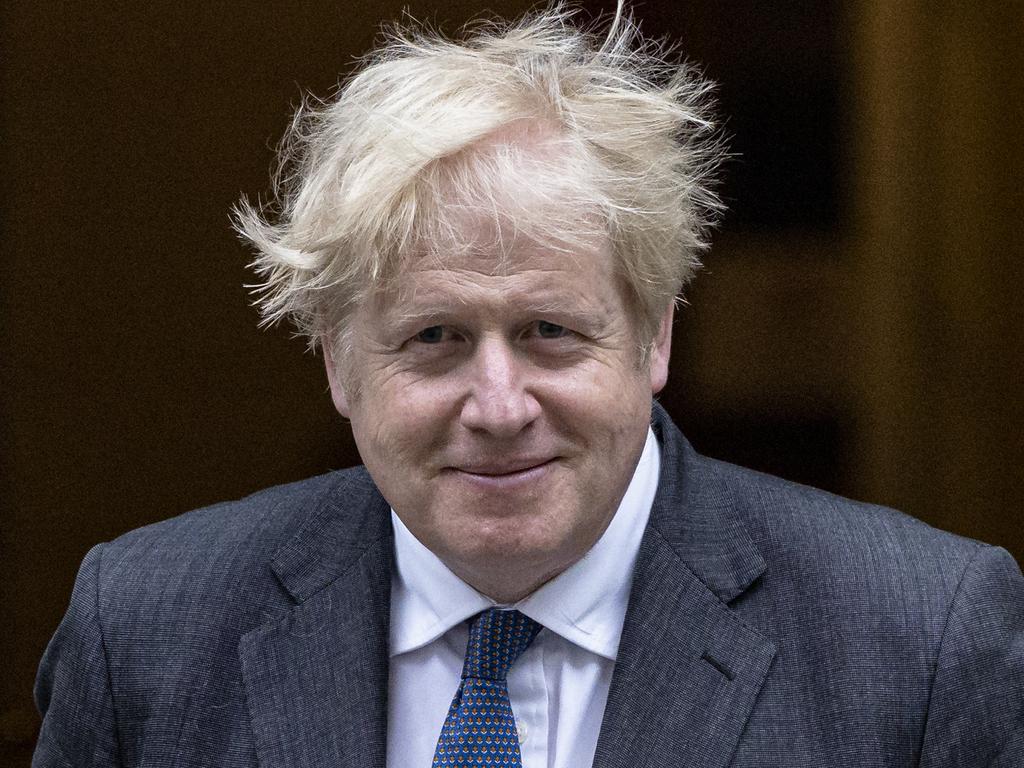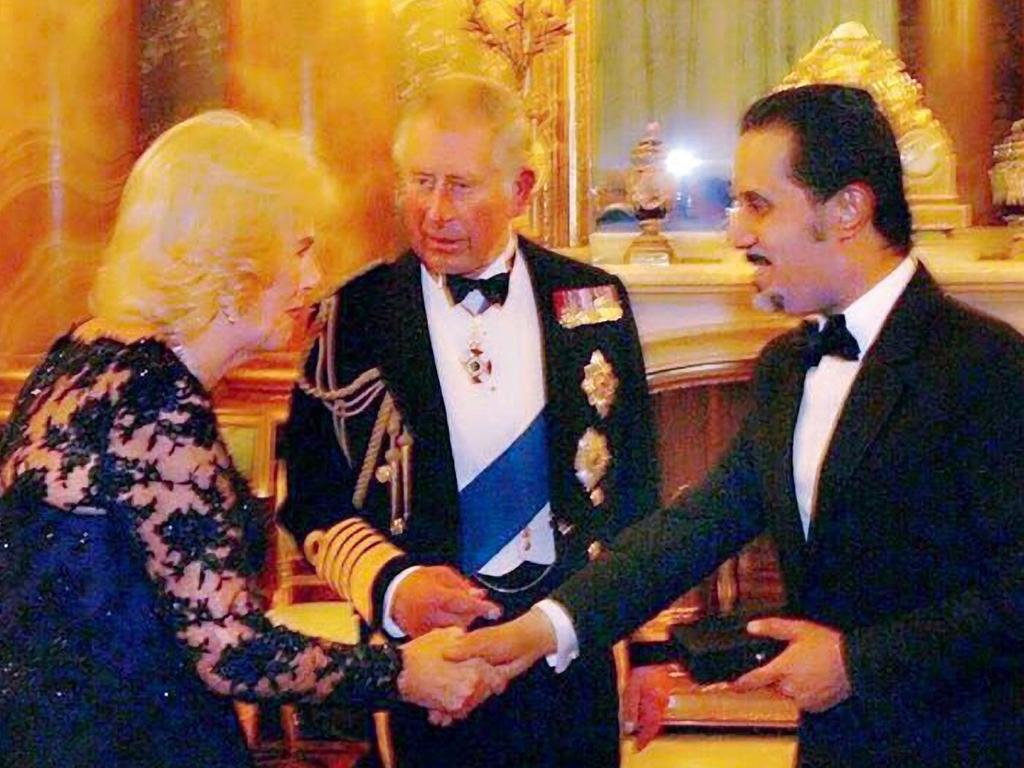Scotland Yard’s dilemma: do we question King Charles III?
The investigation into the ‘cash for honours’ affair becomes even more delicate now Charles is on the throne.

Scotland Yard has stepped up its criminal investigation into the “cash for honours” scandal embroiling the King and his closest advisers.
On Friday the Metropolitan Police revealed that detectives belonging to the same unit that investigated the Downing Street “partygate’‘ affair had interviewed two men, one in his 40s and the other in his 50s, under caution.
They spoke to the suspects on September 6, two days prior to the Queen’s death, about potential offences under the Honours (Prevention of Abuses) Act 1925, which carry a maximum sentence of two years in prison.
Police said in February that they had opened a criminal inquiry into allegations that Mahfouz Marei Mubarak bin Mahfouz, a Saudi tycoon, had been made a CBE after giving £1.5 million ($2.5 million) to the then Prince of Wales’s pet causes.
The claim is that Michael Fawcett, the King’s former right-hand man, helped to secure the honour in 2016 when it was handed over by Charles in a private ceremony that was not recorded in the Court Circular. Fawcett resigned in November but it is only now that the police inquiry seems to be gathering pace.
The development presents fresh problems for the King, 73. It means the sovereign – the person to whom police officers swear loyalty, and in whose name the criminal justice system operates – will remain at the centre of a police inquiry for months.
Detectives now have the unenviable task of deciding who else they will speak to as they carry out the most sensitive of inquiries.
The King
The King, as the Prince of Wales, met Mahfouz many times. He saw him at Clarence House; Dumfries House, his Scottish manor; the UK embassy in Riyadh, and during the undisclosed Buckingham Palace ceremony.
He has declined to state the purpose of these meetings but the police may be interested. Buckingham Palace says the King has neither spoken to nor provided a written response to any formal questions from the Metropolitan Police.
The confirmation is a change in position: the King’s representatives had said they would not give a commentary. All of this creates a constitutional dilemma: could Scotland Yard question the King as a witness or even a suspect if they wanted to?
The monarch could give information or a statement to police, just as the late Queen did during the trial of Paul Burrell, her former footman, in 2002, which was a key factor in the Crown Prosecution Service deciding that action was unviable.
However, under the concept of “sovereign immunity”, he cannot be compelled to give evidence in court. Nazir Afzal, the former chief prosecutor for northwest England, suggested that any evidence Charles did give could be inadmissable, imperilling the viability of any trial.

Michael Fawcett
Fawcett, 59, was the man entrusted with giving effect to Charles’s wishes. As the King himself once put it: “I can manage without just about anyone, except for Michael.”
The former palace footman was tasked with everything from squeezing toothpaste on to Charles’s brush to running the Prince’s Foundation.
Until September last year, that is, when Fawcett stepped down, then formally resigned, from his six-figure role amid evidence that he brokered an honour for Mahfouz. Since then, Fawcett has not spoken publicly or responded to claims of wrongdoing.
If police are to understand the events surrounding the CBE, they must speak to Fawcett, who hosted a meeting at Clarence House about it, choreographed the application and wrote his own letter of recommendation.
We asked if he had been interviewed but he would not say.
William Bortrick
Bortrick, 49, is a genealogist and the publisher of Burke’s Peerage, the guide to the British aristocracy. The tweed-clad Ulsterman also spent years as a paid fixer helping wealthy clients to secure access to the establishment.
One of them was Mahfouz, whose CBE he helped to broker and whose donations to the prince, Bortrick told Charles’s team, hinged on the award of an honour.
He flew to Saudi Arabia for Charles’s secret meeting with Mahfouz in 2016, and sat on the sidelines with Fawcett as the prince and Mahfouz posed for photographs and had tea and sandwiches.
Bortrick is at the heart of the police investigation as well as statutory inquiries by the Charity Commission and Office of the Scottish Charity Regulator. Asked if he had been interviewed by police, he declined to respond.
Busief Lamlum
Mahfouz’s right-hand man is Lamlum, 60, a Libyan-born fixer who lives in Chelsea, west London. Lamlum helped Mahfouz with everything from securing places for his children at an English boarding school to obtaining the scrolls, swords and prestigious-sounding awards he coveted.
He received vital correspondence about the CBE and attended the ceremony in Buckingham Palace. Lamlum has not spoken publicly and his son said he had no desire to change his position.
Mahfouz Marei Mubarak bin Mahfouz
Mahfouz, 52, spent years and tens of millions of pounds to establish himself in Britain.
He acquired London properties, donated to the prince’s causes and even bought a hereditary title.
In Dumfries House in Ayrshire, southwest Scotland, there is the Mahfouz Fountain and Garden. At the 15th-century Castle of Mey, there is Mahfouz Wood.
He is able to style himself as His Excellency Dr Mahfouz Marei Mubarak bin Mahfouz, CBE, FRSA, lord and baron of Abernethy.
Today he has vanished. He has no known legal representative. The Saudi embassy would not comment. The Met would not say if it had asked its counterparts in the Gulf kingdom about questioning him.
Dame Lynne Brindley
Brindley, 72, was the master of Pembroke College, Oxford, to which Mahfouz was a prolific donor. She was used by the prince and Mahfouz’s aides to front the CBE application.
According to correspondence, fixers contacted her months after conceiving of the honour and asked if she would nominate him.
They reported that she was “delighted to assist”. She wrote her own nomination, praising Mahfouz’s philanthropy.
Brindley, a former chief executive of the British Library, has denied wrongdoing, saying she put Mahfouz forward of her own volition. However, the fact that Charles’s aide solicited and handled her nomination letter means she is under scrutiny.
Michael Wynne-Parker
Dubbed the “man with the golden address book”, Wynne-Parker, 76, is a businessman who introduced Mahfouz’s representatives to Charles’s aides.
He attended meetings, including one at Clarence House where the honour was discussed. He has not been contacted by detectives.
The Sunday Times





To join the conversation, please log in. Don't have an account? Register
Join the conversation, you are commenting as Logout